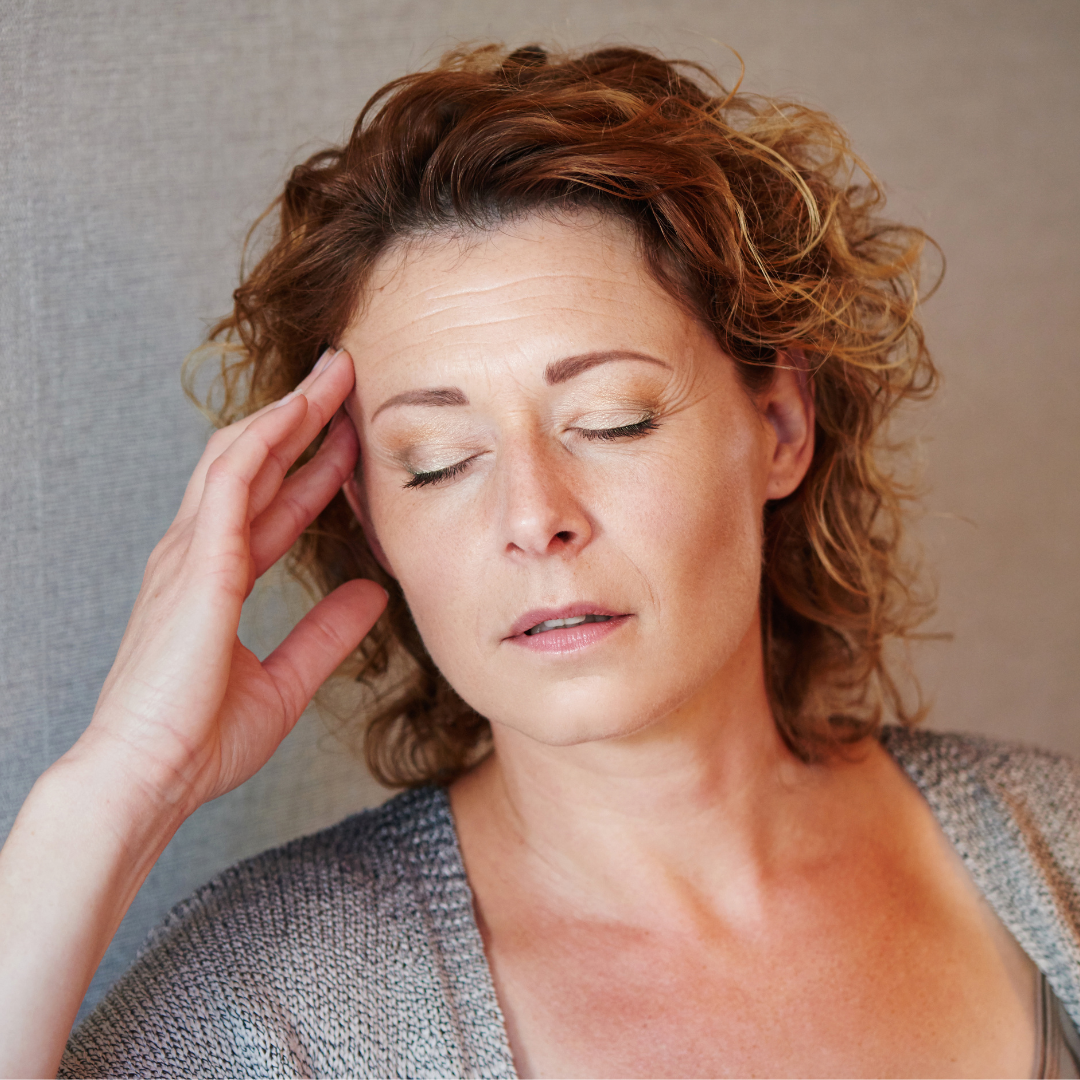
What's Up with My Sleep?
Oestrogen plays an important role in our sleep-wake cycle, and reduced oestrogen through peri menopauseand menopause may lead women to experience raised temperatures, anxiety, low mood, urinary urgency and vaginal dryness, among many other symptoms, that all contribute to poor quality sleep.
Our sleep-wake cycle also changes with age, and loses its consistency. This is partly due to lower levels of melatonin as we get older. It’s not unusual for women to drop off to sleep without a problem, only to find themselves awake in the early hours of the morning and unable to get back to sleep.
Women may also begin taking medications, whether due to menopause or other symptoms of ageing, such as joint pains, aches and bladder problems and these may interfere with sleep. These same symptoms are also associated with peri menopause and menopause and can similarly contribute to sleep problems.
Can Treating Menopause Improve Sleep?
Hormone Replacement Therapy (HRT) is effective in relieving peri menopause and menopause symptoms, including flushes, sweats, anxiety, joint pain and low mood. Replacing oestrogen helps improve sleep directly too. Progesterone, which is a body identical hormone, can be sedating and help sleep as a side effect, which is why it’s best taken at night.
Cognitive Behavioural Therapy (CBT)
Cognitive behavioural therapy for insomnia is also effective in relieving insomnia (CBTI), and is worth considering if other things aren’t helping. CBT can also help ease the distress and impact of hot flushes and night sweats as well as improve general stress and anxiety symptoms.
Tips for sleeping better during the peri menopause and menopause
If you experience sleep issues related to menopause, consult a doctor in the first instance. They will ask about your personal medical history and can recommend appropriate treatment options, including medications and lifestyle changes that may help improve your sleep. The following sleep tips may also be helpful to consider:
- Avoid nicotine, caffeine, and alcohol, especially in the late afternoon and early evening. These substances can all disrupt quality of sleep. Caffeine acts as a stimulant, and stays in the blood stream for up to 20 hours after drinking it.

- Getting natural daylight in the morning can help build up your ‘sleep drive or pressure’, which needs to build up during the day to allow sleep at night.
- Exercise and cognitive stimulation during the day is positive for sleep. But don’t exercise too close to going to bed.
- Avoid using devices such as your mobile phone for 1-2 hours before trying to sleep, they can cause over stimulation before bed and the blue light can be disruptive. Try not to work for 2 hours before sleeping.

- Reduce stress as much as possible. Anxious and stressful thoughts can keep you awake at night, making it harder to fall asleep. Keeping a notebook beside your bed and writing down any worries or anxieties before going to sleep can help ‘box’ these thoughts away and clear the mind for a better night’s sleep. It can also be helpful to introduce a regular activity in the day that helps reduce stress.
- Develop a bedtime routine that cools lowers your stress. Take a bath, listen to music, or read. Try some relaxation techniques, such as meditation or deep breathing.

- Develop a routine if you wake during the night. If you can’t get back to sleep, get up and do something relaxing, only return to bed once you feel sleepy again.
- Dress in breathable fabrics, and try using a different duvet from your partner, so you can easily remove it if needed without disturbing them.
- Keep your bedroom temperature cool and comfortable. Use a fan if necessary or open the window.
- Follow a regular sleep schedule, going to bed and waking up at the same time every day. Avoid naps and lie-ins as these can interfere with your ‘sleep drive’ which is important to build up during the day.

- Melatonin isn’t recommended as there’s no evidence it supports sleep.
- Magnesium hasn’t been shown to help sleep in studies. However, some women find it helps.
In Summary
Sleep issues are a common occurrence in menopause, but there are many options for relieving them. If sleep issues persist, seek out a therapist trained in CBTI, and who has experience working with women in peri menopause and menopause.
Dr Emma Ping qualified as a GP over 20 years ago, and is dedicated to providing evidence-based menopause care. She is passionate about offering women holistic, patient-centred, bespoke advice and empowering them to maximise their wellbeing and long-term health at any age. She recognises that every woman’s situation is unique, and understands the difference positive advice and treatment can have on the way you feel and quality of life. She has a special interest in genitourinary syndrome of the menopause.
Dr Emma Ping is part of the team of Menopause Specialist GPs at https://menopausecare.co.uk/
www.harleystathome.com | Instagram @harleystreetathomemenopause
Facebook: Search Harley Street at Home: Diagnosis, Symptoms & Treatments or Harley St at Home: Lifestyle, Self-Care and Lifestyle to join our private community



